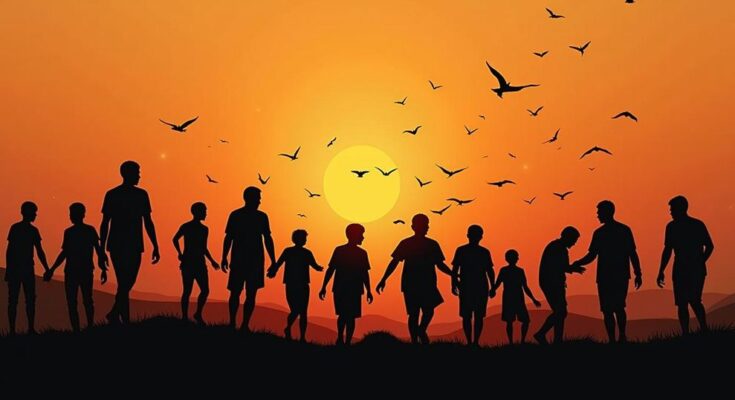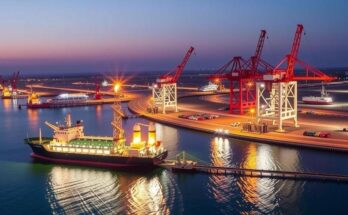The Israeli air strikes in Lebanon have deeply affected the Lebanese diaspora in West Africa, particularly in Senegal, Côte d’Ivoire, and Nigeria. Individuals share experiences filled with fear, sadness, and anger as they navigate the crisis, expressing solidarity and a commitment to support their loved ones in Lebanon through various initiatives. Their accounts illustrate the emotional toll and community responses to the conflict, highlighting ongoing humanitarian challenges.
The ongoing Israeli air strikes in Lebanon have profoundly impacted the Lebanese diaspora residing in West Africa, with communities in Senegal, Côte d’Ivoire, and Nigeria expressing their anguish as they witness the violence unfold from afar. Lived experiences highlight a range of emotions, from fear and sadness to anger, as individuals emphasize the strong sense of solidarity within their communities. In Dakar, Zoheir Zeidan, a 61-year-old telecom director, expressed his dread at the escalation of conflict, noting that he anticipated Israel’s military response towards Lebanon since the onset of the Gaza conflict. He recounted the tragic news he received about a childhood friend, whose family was bombed, reinforcing the pervasive sense of alertness among community members. “Sad because we find ourselves in a situation where we can lose a country overnight and find ourselves the new Palestinians of the land. And anger because of the powerlessness we have today in seeing what is happening and the indifference of the West to this situation, which appalls us,” Zeidan stated. He revealed that material support is being organized back home through networks established in Dakar, Abidjan, and Nigeria. In Côte d’Ivoire, Zara Mirza-Branger, a 31-year-old sales assistant, shared her concerns for her parents, who have recently fled Tyre for Beirut amid increasing military actions. “We’re always watching the news, we can’t even think about working any more. Every time we hear that they’ve bombed, we call my parents. We try to send them money, to help as much as we can,” she said. Mirza-Branger highlighted communal efforts to collect necessary supplies for those affected back in Lebanon, reflecting deep concern over the catastrophic conditions there. George Chaanine, a 31-year-old business owner in Lagos, conveyed the collective worries shared among the Lebanese community regarding the ravaging effects of the conflict. He noted that the conflict’s spread across multiple regions of Lebanon intensifies their fears. “We create WhatsApp groups where we all make donations,” Chaanine explained. He pointed out the logistical challenges faced within Lebanon, further exacerbating humanitarian needs as the war disrupts essential supply chains. Together, these narratives illuminate the gravity of the situation impacting Lebanese nationals overseas, instilling a shared urgency to act despite their geographical distance from the conflict zones.
The article addresses the emotional toll and community responses of the Lebanese diaspora in West Africa amid the ongoing conflict between Israel and militant groups in Lebanon. It specifically highlights how Lebanese individuals in Senegal, Côte d’Ivoire, and Nigeria are grappling with feelings of fear, sadness, and anger as they helplessly witness the violence affecting their homeland. This diaspora, consisting of several hundred thousand individuals, is compelled to support their friends and family back home through various aid initiatives and remains acutely aware of the socio-political ramifications of the conflict.
In summary, the Israeli strikes on Lebanon have resonated deeply within West Africa’s Lebanese communities, igniting a strong emotional response characterized by fear, sadness, and solidarity. The shared efforts to provide support and aid amid the overwhelming sense of helplessness reflect the interconnectedness of the diaspora and their profound concern for the deteriorating situation in Lebanon. The testimonies collected from individuals in Dakar, Abidjan, and Lagos underscore the ongoing humanitarian crisis and the resilience of communities facing adversity, all while calling for greater awareness and action to resolve the conflict.
Original Source: www.channelstv.com




